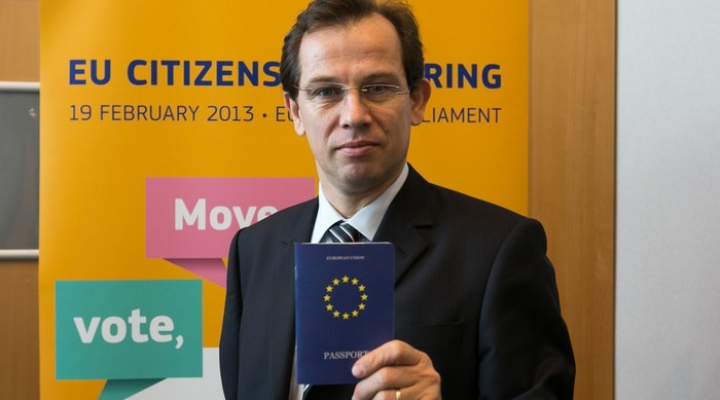Hearing in Brussels on maximizing the use of the benefits of European citizenship
The European Parliament and the European Commission organized a public hearing on February 20th in Brussels, on the subject of maximizing the use of the benefits of European citizenship. This was the first of the series of events organized within the European Year of Citizens (2013).
The aim of the European Year is to eliminate the European citizenship-related practical barriers citizens encounter in their everyday lives – especially in the fields of freedom of movement and exercising political rights – through the events organized throughout the year.
Experts invited by members of the European Parliament and representatives of Nongovernmental Organizations agreed that there have been significant improvements in the field of EU citizens’ rights in comparison to the situation reported in 2010. They presented case studies containing opinions of individuals, workers, students, politicians and consumers as well as the results of a survey conducted by the European Commission in 2012.
DAHR MEP Csaba Sógor attended the discussions. During the afternoon session of the hearing Sógor spoke about the current multiple crises emphasizing the importance of EU citizenship in the process of European integration. “The European Year of Citizens focuses on a very important issue. European integration could not have been possible without he support of citizens. Their support is again crucial for deepening integration and combating the economic crisis. It is extremely important for people to be aware of their rights and the opportunities available to them through European citizenship. The local issues are the real European issues. Instead of dealing with their concrete problems, we cannot talk to them about abstract, distant questions. Few citizens are interested in traveling or working in other European member states, most of them want to thrive in their home countries. Why are Eastern Europeans second grade EU citizens? They receive less agricultural subsidies than their Western counterparts, they are prohibited from using their symbols or their mother tongues and some of them are even stripped of their citizenship, just because their grandfather fought on the wrong side of the war” – warned Sógor.
Discussing about the concept of European citizenship, the Transylvanian MEP mentioned the issue of citizens being discriminated against while in other EU member states. He also spoke about people who have never moved to another country, but - with the borders changing around them - have ended up minorities and became victims of discrimination in their native land.
“It is prohibited to discriminate against people while in another EU member state based on their citizenship, and individuals are entitled to an equal treatment with the residents of that state in all aspects. Without underestimating the importance of this right, or the importance of people’s free mobility in the EU, I believe that during the European Year of Citizens we should further discuss what being a European citizen really means in a broader sense. We should discuss what it means for those who do not wish to settle or work in another EU member state, but who want to exercise their rights in their home land. I stress this issue, because I believe the majority of Europeans are in this situation, and Europe should formulate a message to them during this year.”
Finally, Csaba Sógor referred to the vast difference between what people expected form the European Union before accession and today’s the reality in the most recent member states and urged the EU to deal with the issue of national minorities being discriminated against. “I do not want to go into specific examples, but I am from Eastern Europe and I know exactly what people expected before accession and what the situation is today. We talk about prohibiting discrimination based on citizenship, whilst a member state revokes from its citizens their citizenship, a right they have earned at birth, thus making members of national minorities feel that they are discriminated against. I believe Europe should show improvements in this field during the European Year of Citizens, or else, being a European citizen will mean precious little for many”, summarized the MEP.











